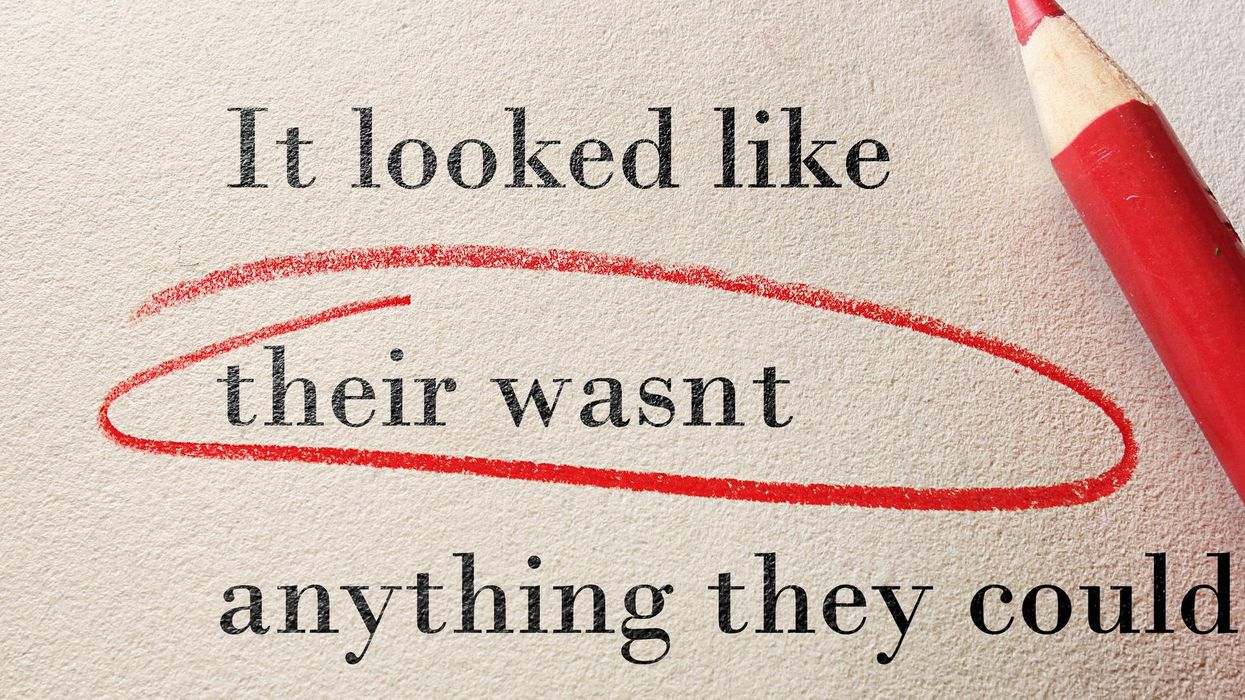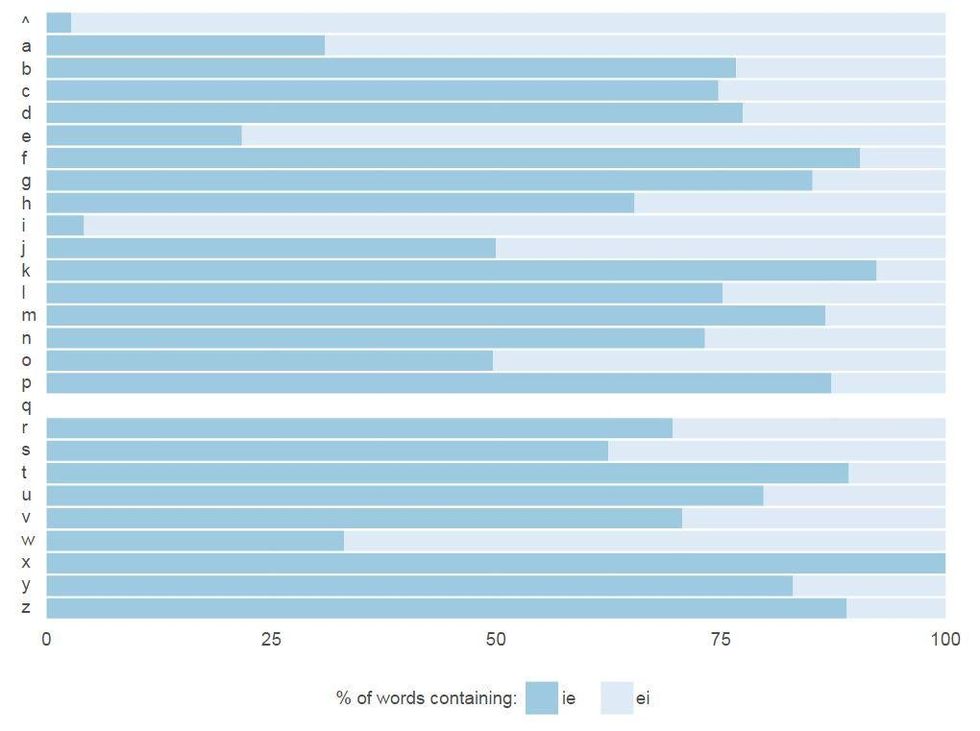
Nathan Cunningham, a second-year statistics PhD student at the University of Warwick, recently set out in a blog post to debunk one of the most pernicious spelling rules we take as gospel.
I before E except after C.
In an article, published on his blog on 26 June, he says the inspiration came from an episode of QI, which claimed the rule actually had more exceptions than incidents that obeyed it.
In short, that words containing 'cie' actually outnumbered those containing 'cei'.
That's spelling for you.
He took a list of 350,000 English words and did some analysis.
He found that there's a roughly 75 per cent chance that 'i' goes before 'e' in a word, regardless of whether there is a 'c' before it - it, statistically speaking, made very little difference to the ratio.
Here's the ie/ei split following each letter of the alphabet (‘^’ denotes words beginning with either ‘ei’ or ‘ie):

So there you have it, any English teacher who taught you that rule is completely wrong.
Nathan's also worked out whether Christmas actually comes earlier every year and how to find your friends at a music festival, and previously studied at the University College Dublin before working with the Economic and Social Research Institute in Dublin, completing research on the Irish healthcare system.
HT Nathan Cunn
More: The most commonly misspelled words in the English language













